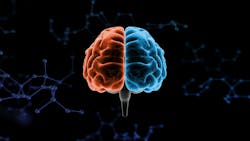A team led by researchers at the University of Washington has developed a laboratory test that can measure levels of amyloid beta oligomers in blood samples. As they report in a paper published the week of December 5 in the Proceedings of the National Academy of Sciences, their test — known by the acronym SOBA — could detect oligomers in the blood of patients with Alzheimer’s disease, but not in most members of a control group who showed no signs of cognitive impairment at the time the blood samples were taken.
However, SOBA did detect oligomers in the blood of 11 individuals from the control group. Follow-up examination records were available for 10 of these individuals, and all were diagnosed years later with mild cognitive impairment or brain pathology consistent with Alzheimer’s disease. Essentially, for these 10 individuals, SOBA had detected the toxic oligomers before symptoms surfaced.
SOBA, which stands for soluble oligomer binding assay, exploits a unique property of the toxic oligomers. When misfolded amyloid beta proteins begin to clump into oligomers, they form a structure known as an alpha sheet. Alpha sheets are not ordinarily found in nature, and past research by Daggett’s team showed that alpha sheets tend to bind to other alpha sheets. At the heart of SOBA is a synthetic alpha sheet designed by her team that can bind to oligomers in samples of either cerebrospinal fluid or blood. The test then uses standard methods to confirm that the oligomers attached to the test surface are made up of amyloid beta proteins.
The team tested SOBA on blood samples from 310 research subjects who had previously made their blood samples and some of their medical records available for Alzheimer’s research. At the time the blood samples had been taken, the subjects were recorded as having no signs of cognitive impairment, mild cognitive impairment, Alzheimer’s disease or another form of dementia.
SOBA detected oligomers in the blood of individuals with mild cognitive impairment and moderate to severe Alzheimer’s. In 53 cases, the research subject’s diagnosis of Alzheimer’s was verified after death by autopsy — and the blood samples of 52 of them, which had been taken years before their deaths, contained toxic oligomers.
SOBA also detected oligomers in those members of the control group who, records show, later developed mild cognitive impairment. Blood samples from other individuals in the control group who remained unimpaired lacked toxic oligomers.

